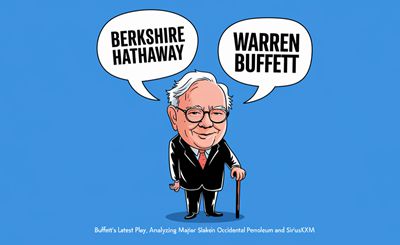Teva Pharmaceuticals: Undervalued Potential in Generic Drug Market?
Teva Pharmaceuticals (NYSE: TEVA) presents a compelling investment opportunity in the generic drug sector, driven by a promising drug pipeline, recent positive clinical trial results, and strategic management improvements. However, potential investors must weigh these strengths against the company’s high debt levels and ongoing regulatory challenges.
Company Overview
Teva Pharmaceuticals, an Israeli-based pharmaceutical giant, operates in three primary segments: North America, Europe, and International Markets. The company is renowned for its extensive portfolio of generic drugs and a growing pipeline of branded pharmaceuticals. Despite facing significant financial and regulatory hurdles, Teva’s recent developments suggest a potential turnaround.
Financial Performance and Market Position
Teva’s financial metrics paint a mixed picture. The company reported an EBITDA (TTM) of $6.84 billion and revenue (TTM) of $16.004 billion, with a gross margin (TTM) of 50.62%. However, its net margin (TTM) stands at -4.96%, and the return on equity (ROE) is negative at -6.51%. The high debt-to-equity ratio of 269.91 (MRQ) is a significant concern, indicating substantial leverage.
Despite these challenges, Teva has received positive analyst ratings. Piper Sandler and Argus have both issued buy ratings, with Argus raising the price target to $24 from $22. This optimism is partly due to Teva’s promising drug pipeline and recent clinical successes.
Recent Developments and Clinical Trials
Teva’s recent clinical trial results have been encouraging. The company, in partnership with Medincell, announced positive Phase 3 efficacy results from the SOLARIS trial for their experimental schizophrenia drug, TEV-749 (olanzapine). Additionally, real-world evidence presented at the 2024 AAN Annual Meeting confirmed the effectiveness and patient satisfaction for HD Chorea with the 4-week titration kit for AUSTEDO® (deutetrabenazine) Tablets. Furthermore, Teva confirmed the efficacy and safety of AJOVY® (fremanezumab) for migraine prevention in a Phase 3 trial in China.
These developments highlight Teva’s potential to expand its market share in the branded drug segment, complementing its strong presence in generics.
Regulatory Challenges and Competitive Landscape
Teva faces significant regulatory challenges, particularly from the Federal Trade Commission (FTC). The FTC is challenging hundreds of alleged “junk” patent listings, which could impact Teva’s ability to maintain exclusivity for certain drugs. This regulatory scrutiny underscores the broader competitive pressures in the pharmaceutical industry, where patent disputes and pricing strategies are critical factors.
The FTC’s focus on reducing barriers to generic competition could benefit Teva in the long run, given its leadership in the generic drug market. However, the immediate impact of these regulatory challenges could create volatility for the stock.
Growth Potential and Strategic Initiatives
Teva’s growth potential is underpinned by its robust drug pipeline and strategic initiatives. The company is expected to launch six biosimilars by 2027, which could significantly boost its revenue. The consensus estimate for Teva’s 2024 earnings has increased from $2.41 to $2.45 per share, reflecting growing investor confidence.
Teva’s newer drugs, including Austedo, Uzedy, and Ajovy, are expected to drive top-line growth in the coming quarters. The company’s focus on innovative treatments and expanding its biosimilar portfolio positions it well for future growth.
Financial Forecast and Analyst Predictions
Wall Street analysts have set an average price target of $19.14 for Teva, with a high of $24.00 and a low of $11.00. This suggests a potential upside of 10.78% from the current share price of $17.28. The earnings per share (EPS) forecast for 2024 is $2.32, with projections of $2.62 for 2025 and $2.81 for 2026. These forecasts indicate a positive trajectory for Teva’s financial performance.
The company’s forecast return on assets (ROA) for 2024-2027 is 7.65%, and its forecast return on equity (ROE) is 44.98%. While the ROA is lower than the industry average, the strong ROE reflects Teva’s potential to generate significant returns for shareholders.
Risks and Considerations
Despite the positive outlook, Teva’s high debt levels pose a significant risk. The company’s total liabilities are substantial, and its negative net margin indicates ongoing profitability challenges. Investors must consider these financial risks when evaluating Teva’s stock.
Additionally, regulatory challenges and potential changes in pharmacy benefit manager (PBM) policies could impact Teva’s competitive landscape. The FTC’s actions against anticompetitive practices and improper patent listings could create uncertainty for Teva and its peers.
Conclusion and Forward-Looking Statement
In conclusion, Teva Pharmaceuticals offers a promising investment opportunity in the generic drug sector, driven by a strong drug pipeline, recent clinical successes, and positive analyst ratings. However, potential investors must carefully weigh the company’s high debt levels and regulatory challenges.
Looking ahead, Teva’s strategic focus on innovative treatments and biosimilars, coupled with its leadership in the generic drug market, positions it well for future growth. Investors should monitor the company’s financial performance, regulatory developments, and competitive landscape to make informed investment decisions.
Teva Pharmaceuticals stands at a critical juncture, with the potential to unlock significant value for shareholders. The company’s ability to navigate its financial and regulatory challenges will be key to realizing this potential.


